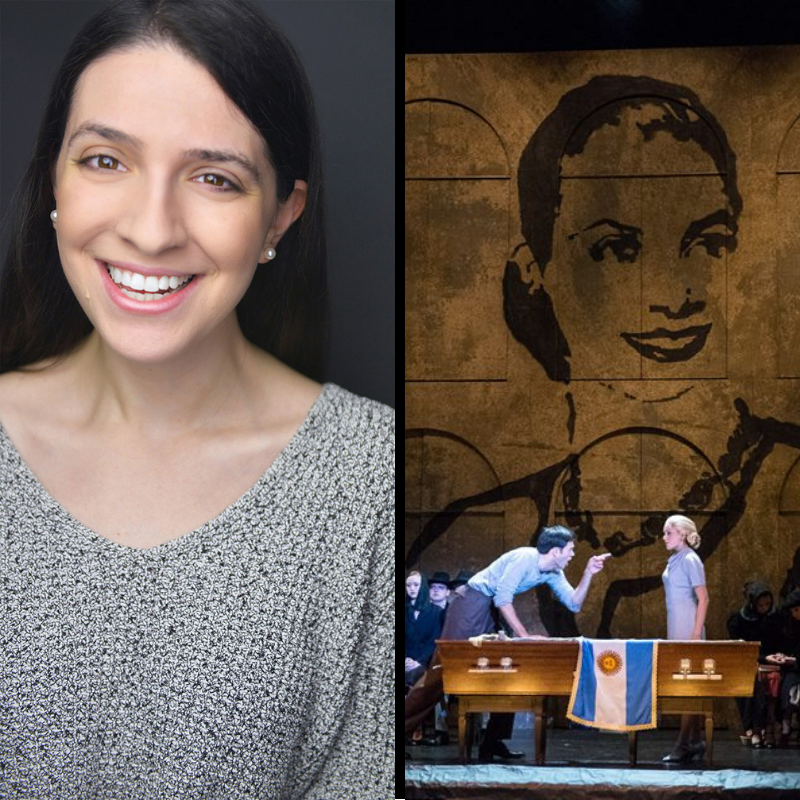This STS alum is the youngest female director in Cambridge’s American Repertory Theater

She eats, breathes and dreams of theater. Meet Sammi Cannold (STS 2012), the youngest female director in Cambridge’s American Repertory Theater history. Recently named to the Forbes 30 Under 30 list, Sammi (24 years old) exclaims, “I’m not sure I know who I’d be without theater anymore!”
Next month, Sammi is looking forward to the premier of Celine Song’s Endlings, a play about three elderly women on the Korean island of Man –Jae. As Director of the play, Sammi will work with the cast and writer to tell an authentic story, which centers on the special place in society three elderly women hold as “haenyeos”— female divers who make a living scavenging the sea for seaweed, fish and clams. These women do not have offspring who can continue their legacy.
With creative license, Sammi evolved the play from page to stage in just a year and a half. It is now just weeks from its world debut. As a freelance theater director Sammi says sometimes her projects hatch through her own initiative while other times “they come to you.” In the case of Endlings, Sammi’s friend Kevin Lin–an agent at Creative Artists Agency (CAA)–sent her the play after signing the playwright, Celine Song.
“I read it and fell in love with the piece and its writer rather instantaneously.”
In 2016, the Stanford graduate and Sundance Institute Fellow adapted Ragtime, the 1975 historical fiction novel by E.L. Doctorow and 12-time Tony-nominated musical to be a “site specific” production. What made Sammi’s 2016 version distinctive? Sammi’s version of Ragtime, a story about three different immigrant groups in the US at the turn of the 20th century, was performed in the Registry Room on Ellis Island, the entryway for 12 million immigrants to the US for 60 years. Her team built a stage in the hall.
Getting a three-year crash course in how to be an excellent researcher has again and again, proven more helpful than I could have ever imagined.
“The idea behind site-specific theater is that you perform in spaces that are not traditional theaters and that’s the joy of it. The piece on Ellis Island was meant to connect the story with the site and vice versa. My dream now is to be able to mount a fully staged production of the piece on the island. Particularly at a time where immigration is such a charged topic, it feels like a story we need to be telling, especially if we can tell it in such a meaningful site!”

Although Sammi grew up around theater (her parents are both thespians) she had many interests and went through the conundrum that most young people go through, choosing a major and career path. In high school, Sammi competed in the Science Talent Search, submitting a project studying and comparing the American and Finnish high school education systems. She became fascinated by the way individuals learn in different parts of the world after reading a Wall Street Journal article chronicling the Finnish approach to teaching and learning.
“So, it was squarely in the world of social science versus what I think folks typically associate with the fair, but exploration in that realm has served me in more ways than I can count in my life beyond high school. The investigative skills, the diligence and precision required to conduct a three-year scientific study, my time researching in Finland.”
I love that there are ways in which we can apply quantitative investigation to a world that is so qualitative. In the world of theater in particular, there traditionally are no ‘right answers’ most of the time, but I think STS has taught me that science can help us understand how some answers may be more likely to be right than others.
Sammi applied to college with the intent of studying education policy and working in the public sector, but she ultimately earned a Masters in arts education. “I love that there are ways in which we can apply quantitative investigation to a world that is so qualitative. In the world of theater in particular, there traditionally are no ‘right answers’ most of the time, but I think STS has taught me that science can help us understand how some answers may be more likely to be right than others,” Sammi explained. In addition to directing theater productions, she also teaches theater classes.
Sammi draws similarities between how she tackled science research and how she’s approached a stage production. She believes that directing is a lot like teaching. “As a director, you have to come in with something of a plan for how you get to an end goal and figure out the best way to communicate it to the folks who are looking to you for answers. So, spending three years studying the best school system in the world was extraordinarily enlightening in terms of understanding how humans learn and don’t learn. Being able to then apply that knowledge in a rehearsal room has been invaluable.”
Spending three years studying the best school system in the world was extraordinarily enlightening in terms of understanding how humans learn and don’t learn. Being able to then apply that knowledge in a rehearsal room has been invaluable.
She also emphasized that the skills she built as a researcher are desirable in theater. As a good Director, Sammi said it’s important to research everything about a play she’s working on, from delving into the history to location to culture, no nook remains unexplored. “Getting a three-year crash course in how to be an excellent researcher has again and again, proven more helpful than I could have ever imagined,” Sammi explained.
One day Sammi would like to foray into the world of film, starting with a hybrid project such as a theatrical film production. But for now, she’s focusing her attention on theater productions in Cambridge and beyond.
Performance of Endlings begins on Feb. 26.


